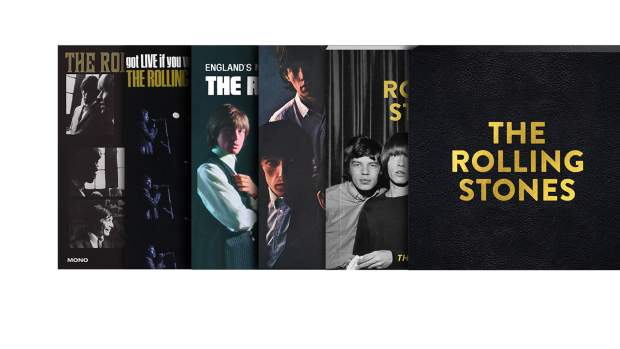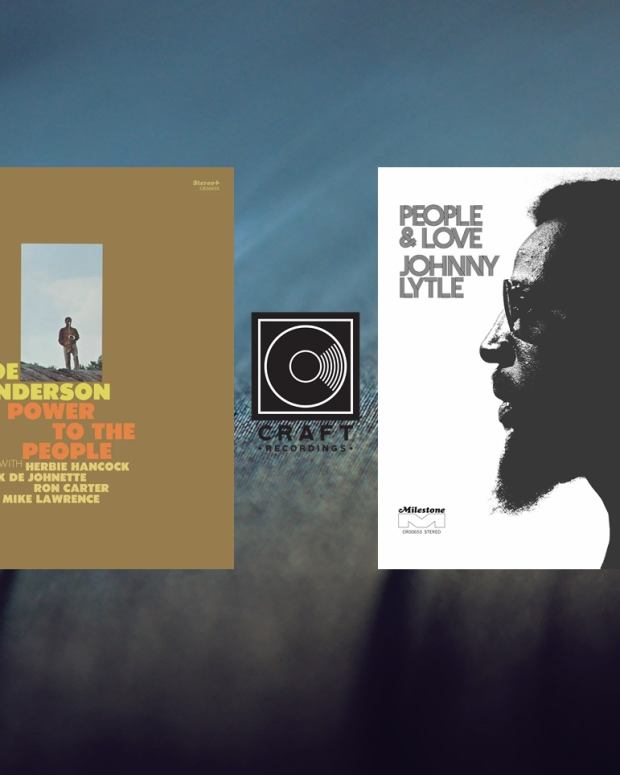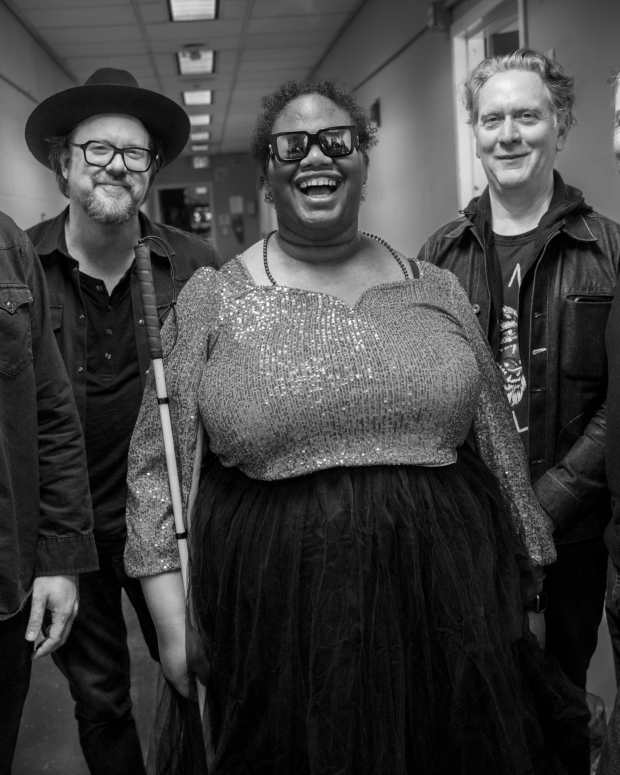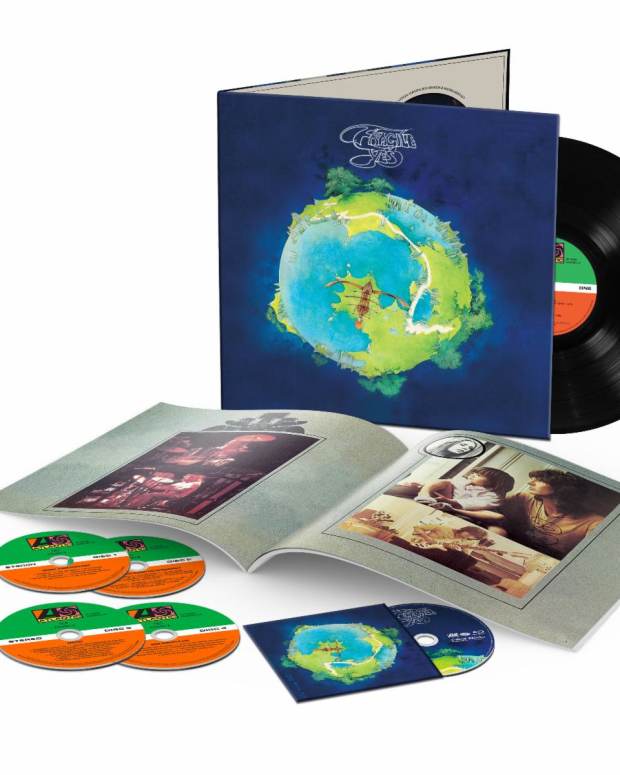Remembering Dwight Twilley with a cherished look at his top album releases
When he unexpectedly passed on October 18, Dwight Twilley left behind a rich legacy filled with blissfully melodic, wonderfully evocative music. The two Dwight Twilley Band albums from 1976 and 1977 (Sincerely and Twilley Don’t Mind) collect some of the finest, most historically relevant power pop sounds that the decade produced. Along with Big Star, Raspberries and Badfinger, Twilley and his musical compadre Phil Seymour took many of their musical cues from the Beatles and added their own twists and shouts: in DTB’s case, generous helpings of slapback echo and breathy, distinctive vocals, often combined with a rockabilly edge, helped define their original sound.
Chemistry is a beautiful thing. Lennon and McCartney had it. So did Townsend and Daltrey. And no power pop duo could match the chemistry created when Twilley and Seymour played and sang together; but alas, their special alliance only lasted for a mere two records. But oh, what records they are! DTB’s debut, the sterling Sincerely, could have been subtitled The Beatles Meet Elvis and the Byrds in Tulsa, as that is an apt description of its contents. Of course, the iconic Top 20 hit/power pop classic "I'm On Fire" is the star of the show, but there are oodles of other tracks that showcase the magic that Dwight and Phil created: the straight up rockabilly raver “T.V.”; the smooth, dreamy “You Were So Warm” (ahhh…those harmonies); the hypnotic title track, the ‘50s-influenced charmer “Release Me”; and the impeccably constructed “Three Persons” (ahhh…more harmonies). Also of note is the perfectly off kilter “Baby Let’s Cruise,” which is seasoned with Beau Brummels-like harmonica washes, pounding piano, some bizarre lyrical images, a smattering of John Lennon-inspired screams, and a slyly dirty chorus. Sincerely is certainly an album for the ages. “I think it was a magical record and I'm still very proud of it,” Twilley told me in 2007.
DTB’s sophomore release, Twilley Don’t Mind, is nearly as perfect as the debut. Cuts such as the sassy, brassy title track (sort of a power pop “Hey! Bo Diddley”), the breezy, Everly Brothers-like “Chance to Get Away,” and the awesome 1-2 punch of the chugging, piano-based “Looking for the Magic” and the sublime “Trying to Find My Baby” all showcase Twilley’s ample songwriting chops and more of the duo’s signature harmonies. (And in addition to being a damned fine drummer, Seymour shows off some nifty bass moves on TDM as well.) As was the case on Sincerely, both Dwight and Phil handled lead vocal duties, proving the Dwight Twilley Band to be a true collaborative effort.
Twilley and Seymour went their separate ways after Twilley Don’t Mind, with Seymour stepping out for a mildly successful solo career; his self-titled debut album reached number 64 on the Billboard charts, buoyed by the success of the “Precious to Me” single, which climbed to number 22 in late March 1981. Sadly, Seymour passed away from lymphoma at age 41 in 1993.
Twilley forged ahead, releasing his first solo album—simply titled Twilley—in 1979. It was adorned with A Hard Day’s Night-inspired cover art and while not as immediately satisfying as the two Dwight Twilley Band records, the passage of time has revealed it to be an overlooked, relatively low-key winner. “Alone in My Room” would have been an excellent choice for a single (it dated from the DTB days and was vaguely reminiscent of “I’m on Fire”), but it was passed over by the record company in favor of the heavily orchestrated, grandiose ballad, “Out of My Hands.” “Betsy Sue” was another goodie, a rockabilly hip-shaker that Twilley and Seymour had performed live as far back as 1976. (It makes an appearance on 2009’s Live from Agora CD). Elsewhere: Seymour contributed his signature backing vocals to the sweet “Darlin’” (Twilley’s favorite tune on the record, he later said), and the suggestive, piano-based “I Wanna Make Love to You” was released as a single in Germany only.
Record company issues saw to it that Twilley would not release another album for three years, but when Scuba Divers arrived in 1982, it proved well worth the wait. Recorded in Los Angeles and a solid effort from front to back, it found Twilley working with friends both new (Susan Cowsill, John Cowsill, Danny Kortchmar, Benmont Tench) and old (his longtime guitarist, the late Bill Pitcock IV). Together they helped create the timeless Twilley sound, with several of the tunes ranking as among the best in his catalog: the opening clarion call, “I’m Back Again”; “Somebody to Love,” which underwent much tinkering during the recording and production process but still stands as a Twilley classic; the trippy, insistent “10,000 American Scuba Divers Dancin’” (Susan Cowsill’s harmony vocals here are golden, as are very Zen lyrics such as, “What it means is what it means is what it really means”); and Twilley’s heartfelt, gorgeous musical love letter to his daughter, “Dion Baby.” The disc closes with the dreamy, ‘50s-influenced “Falling in Love Again,” which is dressed up with an absolutely amazing vocal arrangement and some vintage-sounding sax courtesy of Steve Douglas. (Both the Twilley and Scuba Divers albums are long out of print; the only reissue was a rare 2006 Australian CD on Raven Records that collected both albums on a single disc and added two non-LP cuts.)
Dwight Twilley’s next release was his most commercially successful album: 1984’s Jungle cracked the top 40, with the super-catchy single “Girls” climbing to number 16 on the Billboard Hot 100. “Girls” was boosted by a video that was in heavy rotation on MTV (with, apparently, a special R-rated version created for The Playboy Channel), along with a special guest appearance from Twilley’s old pal Tom Petty on counterpoint vocals. (A big shoutout to Bill Pitcock IV for the blistering guitar solo on this one. “I was concerned that the tape might melt when he laid this one down,” Twilley later said.) For the most part, Jungle does not fall prey to the overindulgent production practices that befell so many pop artists during that period; there are some electronic touches that are apparent, but they thankfully don’t overpower what was another top-notch batch of Twilley tunes. The disc-opening “Little Bit of Love” was released as a single and deserved a much better chart fate than number 77; it’s a powerful piece of pop-rock that is almost cinematic in scope. (Twilley originally penned this one for Kim Carnes.) “Why You Wanna Break My Heart” is a classic Twilley ballad with another harmony vocal from Susan Cowsill that is sheer perfection; the song later appeared on the hit soundtrack to the film Wayne’s World in a version sung by actress Tia Carrere. Other jewels present here: “You Can Change It, “Cry Baby,” “Don’t You Love Her” and the hilarious 1:41 that is “Max Dog.” Incredibly, Jungle has never been released on compact disc nor re-released on vinyl.
1986’s Wild Dogs (which was issued for the first time ever on CD earlier this year by Iconoclassic Records) is very much akin to a “lost album” from Twilley. Record label shenanigans (including an alleged payola scandal followed by a severe lack of promotion) torpedoed any chance of commercial success for the album upon its initial release, which was unfortunate for two reasons: Wild Dogs arrived on the heels of Twilley’s highest charting LP, and it was a very strong collection of songs. Sadly, it would turn out to be his major label swansong. Produced by Val Garay, Wild Dogs features some heavy hitters helping to paint the musical backdrop: guitarist Waddy Wachtel, drummer Craig Krampf and bassist Jerry Scheff are among those contributing, along with Susan Cowsill back on vocals and Bill Pitcock IV on guitar. Garay conjures up a warm, radio-friendly vibe on some of Twilley’s finest songs such as “Sexual,” “Secret Place” and “You Don’t Care,” but a few distressingly dated ‘80s production touches also litter the landscape. ”Baby Girl,” for example, is marked with some terribly overheated synthesizer squawks, while the otherwise gorgeous and heart wrenching “Shooting Stars” (written about and with a sweet background vocal by Twilley’s former musical partner, Phil Seymour) is marred ever so slightly by some intrusive, booming electronic drum fills. The 2023 reissue is bolstered by the inclusion of nine bonus tracks, the bulk of which are the original demos for the album.
A few compilations of note: 1993’s The Great Lost Twilley Album is a veritable treasure trove of previously unreleased material from Twilley’s archives, both with and without Phil Seymour. Highlights of the 25-track CD include the should-have-would-have-could-have been a hit single “Shark (in the Dark),” the early Beatles-like treat “Please Say Please,” the original mix of “I’m on Fire,” the breathtaking ballad “No Resistance,” and so much more.
XXI, released in 1996, is a well-chosen, 21-track best-of that cherry-picks from the Dwight Twilley Band material as well as Twilley’s solo work up to that point. Twilley chose the songs and adds some illuminating (and often humorous) song notes, and there are a few previously unreleased cuts appended: “Grey Buildings” and “That Thing You Do.” (The latter was to be submitted for consideration as the title song of the Tom Hanks film, but as Twilley arrived in LA to cut the track, he was informed the Adam Schlesinger-written tune had already been chosen.)
After exiting the major label arena, Twilley continued releasing excellent music on independent labels as well as via his own Big Oak imprint. Special mention must be made of 1999’s Tulsa, 2001’s The Luck and 2011’s Soundtrack, as well as a rarities collection on Not Lame Records titled Between the Cracks, Volume One, released in 2000.
The cream of Twilley's indie label output was collected on a 2016 2-CD compilation titled The Tulsa Years; a pared down, 20 track version was released on vinyl in 2023. Standout cuts include the gorgeous "Oh Carrie," hook-filled, mid-tempo charmers such as "It's Hard to Be a Rebel" and "No Place Like Home," and the lullaby-like "Let it Rain.”
Had he only released the two Dwight Twilley Band albums, Twilley would still be fondly remembered as a master pop craftsman who created his own unique sound. His subsequent output proved there is plenty more to be enjoyed by those who savor memorable melodies and unforgettable hooks. Rest in Peace, Dwight.
For related items that you may enjoy in our Goldmine store (click below):













